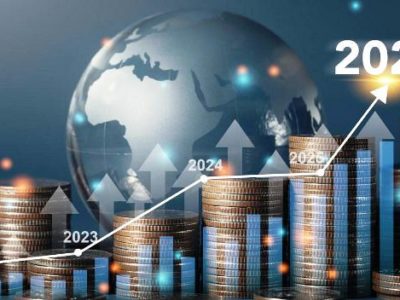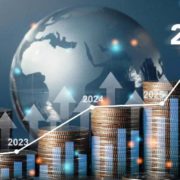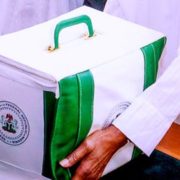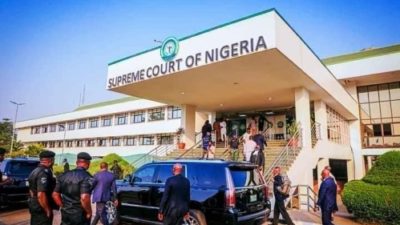Prof Samuel Zalanga teaches at Bethel University, Saint Paul, Minnesota. In this special piece for Baobab Media, Zalanga traces Nigeria’s tragic circumstance to decades old impunity of her ruling class at operating an Apartheid Economic System that has cut down the potential of the country and brought abject poverty to the people. To end this vicious circle will require a cessation of Nigeria’s anti-people resource distribution.

Neoliberalism’s Challenges to the Struggle for Human Dignity in Nigeria –
Economics as social and moral philosophy
‘IN STRICT ECONOMIC TERMS, THE NIGERIAN ECONOMY IS A KIND OF APARTHEID SYSTEM OF RESOURCE DISTRIBUTION AND CONSUMPTION. THE ONLY DIFFERENCE IS THAT THIS IS AN APARTHEID SYSTEM CONCEPTUALIZED, DESIGNED AND OPERATED BY BLACK MINORITY ELITES AGAINST A BLACK MAJORITY POPULATION. THE GREAT MAJORITY OF THE POPULATION LIVES UNDER THE DICTATORSHIP OF POVERTY’
The moral and ethical implication of neoliberalism has been articulated by late Prime Minister Margaret Thatcher. She was stringently opposed to state intervention in the form of providing subsidy for public social services such as higher education, and public assistance to the poor, middle and working classes. Thatcher asserts that: “Economics are the method, but the object is to change the soul.”
What this means is that neoliberalism is not just about public policies to achieve the efficient allocation of scarce resources through the strict application of market criteria and rationality as many economists and gullible people tend to believe. Rather, the main target of neoliberal economics is the transformation of the human soul with a view to creating a new person who fits the new social and economic order that is envisioned. TO this extent, it has become the new secular religion of humanity.
This strategic vision obviously highlights the tension between neoliberalism and Abrahamic religions that are very dominant and popular in Nigeria (i.e., Islam and Christianity). The two religions in their ideal expression are committed to molding human beings to become ethical, moral and caring persons that think globally while acting locally. It is this concern and tension that informs the subject matter of my reflection here. Neoliberalism is characterized as market fundamentalism because it is an approach to public policy decisions, human relations, and organizational leadership that has a “single-minded’ focus on economic priorities.”
Because the main priority of neoliberalism is the efficient allocation and use of scarce resources, this commitment becomes the organizing principle and value-orientation through which human beings are viewed, evaluated and valued, and decisions about who gets what, when, how and where are made. While the application of market fundamentalism may mean pain and suffering to many people, the proponents of the idea believe that you cannot make an omelet without breaking an egg. In effect, right from the beginning this approach to economics believes some people are destined to suffer.
The question is just who are those expendable and disposable human beings? Did God create them too? Do they deserve respect as human beings with dignity? Unfortunately, the two dominant religions in Nigeria have not been known to engage in systematic study of the moral and ethical foundation of an economic system that they have taken for granted and even use it as a sign of God’s blessing on their followers. Yet, if they were to be careful and think deeply in theological terms, they would realize that there is a fundamental moral and ethical conflict. That such depth of reflection and critical interrogation of social reality is lacking is lamentable.
“The challenge here is that the vision of the market as we know it today and the vision of the two dominant religions in their ideal expressions are at logger heads. If they seem not be at logger heads in Nigeria, it is simply because of the distortion of the two religions by the culture of greed and moral and ethical duplicity.”
The moral vision of market fundamentalism is one of atomistic individualism, as Prime Minister Margaret Thatcher observes: “There is no such thing as society. There are individual men and women, and there are families.” Thatcher is not wrong in calling on people to be socially responsible and not totally dependent on the government. No freedom is viable without a sense of social responsibility. But in doing so she elevates the role of the individual to an idolatrous level and diminishes the role of the state and the institutional structures of a society that socially shape a human being.
Consequently, she was committed to dismantling the welfare state through the privatization of as many public services as possible, insisting that people should raise themselves by their bootstraps. Those that are old enough in Nigeria know that this is exactly what happened in Africa starting from the 1980s. For those born after that period, they have not known any other way of doing things except the neoliberal way. This means that there is a whole generation of Nigerians that have grown up in a mean society, with distorted and vitiated human ethics in the name of neoliberalism. Of course members of the older generation are the ones who brought this problem upon the nation, and yet they do not suffer the consequences of the situation. It is the ordinary person that suffers the impact.
Thus, this short reflection is inspired by my desire to explore the role that the marginalization of any serious moral and ethical discussion has played an important role in transforming the individual and society in a Nigeria that has become dominated by neoliberalism following the collapse of Soviet communism and the embracing of free market capitalism by China. Some say China is not fully capitalist because of the important role played by their government in the economy and society.
But if this is the test case for being capitalist, then none of the advanced western nations can claim being capitalist since at the time of their initial economic growth and development, and even today, the state continues to perform important role in shaping the economy and society. In the market society of today, we face the phenomenon of the increased “colonization” of more spheres of human life, endeavors, enterprise and relations by deep market rationality which is the organizing principle and the normative worldview in a market society. This colonization of human endeavors by the market has serious consequences and implications for many institutions in the Nigerian society and indeed African societies at large.
The expansion of market rationality is in many respects functionally equivalent to a secular “evangelical project” that is as deeply and equally committed to transforming human beings and society as religious missionaries are. In this respect there is an unholy intercourse between neoliberalism and greed in the church or worship places that is packaged and sanitized as “God’s blessings.” Christianity and Islam ultimately promises a “heaven” to human beings at the eschaton while the market also promises “the age of high mass consumption” as the ultimate goal of economic development as envisioned in W.W. Rostow’s book titled: “Five Stages of Economic Growth: A Non-Communist Manifesto.”
The challenge here is that the vision of the market as we know it today and the vision of the two dominant religions in their ideal expressions are at logger heads. If they seem not be at logger heads in Nigeria, it is simply because of the distortion of the two religions by the culture of greed and moral and ethical duplicity. Indeed, the market vision of a society and the religious vision are in many respects in direct conflict with each other because both make total and exclusive claims on human beings. The terms for survival of religious organizations and believers in a market society are primarily dictated by the market, often with no regard for religious priorities or sensibilities. The tension between the two is necessitated by the fact that ideally, religious people have to live out their faith and commitment in a market society that operates on a different logic and is committed to bringing more spheres of human life under its control.
They are often compelled to adapt to the dictates of the market in order to survive and flourish, although there is variation in how different religious traditions and organizations pursue this. For instance, the idea of a follower of a follower of Christ having four private jets when Jesus, the son of God as claimed in Christianity refused to live like Herod, Pharaoh or Caesar, demonstrates the extent of distortion of the teachings of Christ. But the ministers are the judge, the jury and the prosecutor. Rather than delve into a detailed discussion of key policy components of neoliberalism, at this I will focus on some moral, ethical and social consequences of neoliberalism and the implications of that for the Nigerian society.
Three Moral, Ethical, and Social Consequences of Neoliberalism
At the center of the religious vision of human beings and human society is a moral and ethical calling that is accompanied by certain social, cultural and institutional expectations. At least this is the case in the ideal expression of Islam and Christianity. In this section, I want to draw the reader’s attention to only three areas of profound tension, if not conflict between the moral and ethical implications of neoliberalism vis-à-vis the two dominant religions in Nigeria, assuming the believers care to reflect deeply.
First, under neoliberalism, one sees a systematic and real shift from the religious concept of human dignity to a functional conception of what it means to be human even though this is not formally and officially stated. In orthodox religious teaching, one’s dignity as a human being is rooted in the person being created by God almighty. But under neoliberalism, while in theory people still maintain their God-given status and dignity as human beings, in reality and practice, their dignity and status in a neoliberal economy is contingent upon achieving certain statuses. The statuses are: their human capital, their effective purchasing power as consumers, their entrepreneurial status or capacity, and whether the people produce any commodity that is crucial to the functioning of the economic system.
Without any one of these statuses in the affirmative, the people are irrelevant in terms of the calculus and function of the economy and society (even if they are religious) except as nuisance and liability to the system. Indeed, the people can veritably be described as “surplus people,” to the extent that over 200, 000 of them can be killed by earth quake as was the case in Haiti some years ago. Yet it would not affect the operation of the global capitalism market. Because the market always produces winners and losers, without charity or compassion, many persons who are systematically categorized as “surplus people” in a neoliberal economy and society can easily perish without upsetting the system.
What this means of course is that under neoliberalism, there is a gradation of citizenship to the extent that one’s value or status as a citizen / human being and what one can enjoy as a citizen / human being is contingent on the person’s valuation in the neoliberal marketplace instead of a guaranteed God-given dignity. While the religious vision of human beings and human society is trying to create a moral, ethical, and caring person that is God-fearing, under neoliberalism, the human, and human dignity are being made fragile and diminished in concrete reality if not validated by the market.
Human beings that represent the epitome of neoliberal human personality are persons that are self-calculating and always committed to pursuing their selfish interests in a presumably enlightened manner in the marketplace; they are entrepreneurial, innovative and audacious. They also see themselves as human capital, have independent measure of utility as individuals, and are not inspired in their behavior by any divine principles of moral and ethical order except moral principles that have emerged spontaneously through the process of economic and social exchange in the marketplace. They only pursue actions that further their own selfish-interests as they define it.
This observation is buttressed by the fact that in Nigeria, there is too much religion but poverty has indeed increased just as religion has expanded and the economy has also expanded from 1960 to date. According to World Bank data 60% of Nigerians are living in poverty. Corruption, dishonesty and the oppression of one group of human beings by another has increased just as the two dominant religions are expanding and penetrating the Nigerian society. Not even the passage of a law against homosexuality is enough to increase Nigeria’s credit score of righteousness in heaven because God hates hypocrisy, especially by those who commit sins but they are oblivious to their own trespasses out spiritual hubris.
The problem for many religious people in Nigeria here is that the official claim of all religions is that a relationship with the Divine will transform a human being to become a better person. The person’s worldview, ethics, morality and aspirations will be transformed for the better by virtue of the relationship with the Divine. When this transformation takes place, it will have positive impact on social relationships, and when social relationships are transformed for the better, the culture will be transformed for the better. And when that happens, the society will be transformed for the better. Overall, this will lead to historical transformation that is better and brings humans closer to the Divine truth of God.
But in Nigeria, we see a situation where religion has expanded but the expansion has not produced the results that we expect based on the ideal claims of the two religions. The religious journey has not brought Nigerians closer to the Divine truth of God in the past fifty years. Actually in spite of it, they have been pushed even far away from the truth of God. For those who expect that Islam and Christianity will transform Nigeria for the better by bringing redemption in the future, they need first to explain why in spite of the fact that the two religions have expanded exponentially in the past fifty, yet we have not seen the kind of expected idealistic transformation that one would expect when religion is working effectively in the lives of people and the public affairs of a society. This is the research question and it is a legitimate one given what we see taking place in Nigeria today.
Second, under neoliberalism, many decisions are made that degrade or undermine human dignity for the ultimate goal of achieving market efficiency in the allocation of scarce resources and increasing organizational, national and economic competitiveness. The consequences of such decisions under normal circumstances are reasons for great lamentation and regret because of the pain and suffering they impose on others i.e., “The Wretched of the Earth” as Frantz Fanon characterized them. But in practice, the market society encourages people to faithfully absorb such decisions that otherwise de-humanize human relationships. In this respect, neoliberalism is engaged in the reconstruction of human beings and disciplining them to become socially abnormal i.e., abnormal or disordered personality.
“In Nigeria, there is too much religion but poverty has indeed increased just as religion has expanded and the economy has also expanded from 1960 to date.”
When workers or more precisely citizens are encouraged to tolerate the violation of certain moral and ethical principles that would normally be taken seriously in ideal religious communities for the ultimate goal of increasing efficiency and economic competitiveness, this amounts to what Soren Kierkegaard calls “the teleological suspension of the ethical” i.e., condoning ethical and moral abuse in the present for the sake of an ultimate virtuous goal. In this context, Patrick Buchanan, an American conservative politician lamented on this kind of moral and ethical consequence of neoliberal capitalism when he noted thus:
Unbridled capitalism is an awesome force that creates new factories, wealth and opportunities that go first to society’s risk takers and holders of capital. But unbridled capitalism is also an awesome destructive force. It makes men and women obsolete as rapidly as it does the products they produce and the plants that employ them. And the people made obsolete and insecure are workers, employees…
Third, the moral and ethical dimension of neoliberalism can also be distilled from the following statement credited to late Nobel Laureate, Professor Milton Friedman of the Chicago School of Economics, on the question of the social responsibility of corporations in society given the huge amount of power they have accumulated in today’s economy and society. Friedman asserts that:
| But the doctrine of “social responsibility” taken seriously would extend the scope of the political mechanism to every human activity. It does not differ in philosophy from the most explicitly collectivist doctrine. It differs only by professing to believe that collectivist ends can be attained without collectivist means. That is why, in my book Capitalism and Freedom, I have called it a “fundamentally subversive doctrine” in a free society, and have said that in such a society, “there is one and only one social responsibility of business–to use its resources and engage in activities designed to increase its profits so long as it stays within the rules of the game, which is to say, engages in open and free competition without deception or fraud. |
What Friedman is promoting is the privatization of social responsibility. He assumes that the legal system and customs of a society are inherently fair and just and so operating within their limits necessarily brings about justice. This is a kind of society whose concept of justice is mechanical and procedural, otherwise nothing substantive is guaranteed. From the sociological point of view, Friedman and persons like him are not completely wrong in conceptualizing law in society the way he did, but they are naïve in ignoring how social and political inequality in every human society and the inequality in the distribution of wealth and variation in ethical commitment in different societies, affect the content and process of law-making.
“Of course institutions such as the banks may have become more efficient because they are strategically situated to serve the interests of the powerful elites and their international collaborators.”
This means we should not just focus on the law but also examine the forces that shape the election of those who make the laws and the content of the laws. Laws are not made in heaven and sent to the legislature for approval. This situation results in a situation where laws even when framed in neutral language, tends to allow well-organized social groups, rich and powerful people to have a disproportionate influence on the system to make it reflect their interests in a pluralistic society.
Conclusion
By way of conclusion, I would like to highlight some concerns based on the foregoing analysis that indicate the desperate nature of the Nigerian situation. First, even if one believes that the state has an important role to play in shaping economic and human development, the unfortunate reality in Nigeria is that the characteristics of the state or government are not the types that enhance economic and human development. The current informed scholarship on economic and human development has clearly established that an effective state is critical for promoting and shaping economic and human development. But not all states or ruling elites in developing countries can do that. The question then is: can we transform the Nigerian state or government from being a predominantly predatory one to a developmental state (i.e., one that promotes the necessary conditions for economic and human development)? Such states do not come into existence through miracle.
Second, even if one was a proponent of free market capitalism, which most Nigerians in my view are, the Nigerian society does not have all the necessary preconditions for that kind of capitalism to flourish as we see it sometimes in other countries, as problematic as it may be. As it is, the Nigerian economy is just being milked for the benefit of a small percentage of the elites and their coteries. In strict economic terms, the Nigerian economy is a kind of apartheid system of resource distribution and consumption. The only difference is that this is an apartheid system conceptualized, designed and operated by Black minority elites against a Black majority population. The great majority of the population lives under the dictatorship of poverty.
Looking at Nigeria, one does not need to be a White or European person before he or she can oppress another human being as many tend to assume because of the legacy of colonialism. In effect, either way, we have a long way to go irrespective of whether our goal is supporting an active role for the state / government in shaping economic and human development, promoting free market capitalism, or a combination of both strategies.
Third, whether the reader is predisposed to the Wild West type of free market capitalism or state-led economic and human development, effective social institutions are necessary in both cases. Unfortunately, Nigeria’s social institutions have been going through relative decline in terms of their institutional capacity. Whether it is the military, educational institutions, regulatory institutions etc., there have been marked decline in institutional capacity today compared to the mid-1970s.
“If we understand what the problems of the country are and acknowledge differences among the people, we can unite for the sake of salvaging the nation. Such a momentum will reverse the course of national decline and stagnation.”
Of course institutions such as the banks may have become more efficient because they are strategically situated to serve the interests of the powerful elites and their international collaborators. The question then is: how do we get our institutions to function effectively and competitively in a globalized economy? The issue is not getting Nigerian institutions back to their 1970s capacity level but we have to compare what we have today with what is necessary to compete effectively in the global economy since Nigeria has embraced neoliberal capitalism, which is dog eat dog system of competition characterized by winners and losers.
Fourth, some scholars argue that for both the government and the market, to function effectively, we need strong civil associations of citizens who are willing to organize and hold both market and state institutions accountable. Such civil society associations also organize to contribute to national development through the voluntary mobilization of private resources for community and national development, outside the strict framework of the market or the state / government (i.e., civil society associations or organizations). Unfortunately, while there are many progressive civil society associations in Nigeria, there are more associations in the country that are engaged in socially unproductive behavior that create “public bads” instead of “public goods.” Some of the associations that produce “public bads” are groups engaged in corruption, promotion of ethnic chauvinism, religious bigotry and class oppression. Many of the country’s citizens are not also “functionally educated” given our technologically-driven world of the 21st century.
Assuming the market, the state and civil society are not functioning effectively, one can still expect the religious institutions in the country to play an exemplary role in reforming society. Unfortunately, while it is true that there are some religious leaders in Nigeria that are working hard and sincerely to make a positive difference, their impact has not created a tipping point for moral and ethical reformation, which will in turn help in transforming our public institutions. The trend in the country is in the direction of greater moral and ethical decline. This is because many or all the problems and challenges in the broader Nigerian society are reproduced in the inner sanctum of the religious institutions.
In this respect, Alexis de Tocqueville said of the United States in the 1840s that Christian teachings promote egalitarianism, while Christian institutions promote structured inequality. In Nigeria, the two religions have not been known to have developed a public brand that is identified with the struggle for social justice or a more just society. There are many religious organizations that are, however, known to have “prosperity gospel” and “divine favor” as their brand. These are not brands that lead to economic and human development for all citizens. Those who pray for divine favor expect that even if the ship of the nation will sink, because of divine favor, they, as individuals will be saved. They are not concerned about everyone in the nation as such being saved, but they are primarily concerned about themselves and people like them. It is a parochial view of humanity. They want God to bless them and at best their co-religionists but not others.
One scary thing about all the preceding analysis is that for the great majority of Nigerians, they are investing more and more of their brain power and energy towards survival and security concerns, i.e., basic needs as Maslow’s hierarchy of needs characterized it. Apart from armed robbery, criminal abduction, Boko Haram ,etc., people have to worry about how they could be negatively impacted in their places of work because of their ethnicity or religion, depending on the social climate in their organization, local government and state. According to research in psychology and the social sciences, human intelligence, innovative capacity, and creativity develop as human beings live in a conducive social and physical environment that has resources which can positively stimulate and challenge them so that they can discover their potentials and freely develop such potentials. Such an environment only exists for a small percentage of Nigerians today. Consequently, one can legitimately make the case that the insecurity in Nigeria (broadly conceptualized) has contributed to the retardation of the development of the intelligence, creative and innovative capacities of the average Nigerian as he or she spends most of his or her time thinking about how to cope with survival.
In some cases, ordinary Nigerians have lost hope that hard work and honesty can enable them achieve their legitimate aspirations since much of what one achieves in Nigeria today depends on his or her social connections and money, instead of hard work and honesty. This, of course, means that insecurity has diminished the capacity of many Nigerians to exercise their creative abilities and energies in innovative ways that would contribute to their personal and national development. The greatest resource of a nation is the creative energies and innovative capacities and determination of the citizens of the country. But in this case, the dysfunctions of social institutions in Nigeria have undermined the main resource and potential of the country.
I will conclude by citing this warning from British scholar, Alexander Pope, which I think is relevant for Nigerians who think that to modernize, especially in a world dominated by western civilization is an easy task. Alexander Pope equated modernizing in the modern world with learning. He observed in this respect that:
| A little learning is a dangerous thing ; |
| Drink deep, or taste not the Pierian spring : |
| There shallow draughts intoxicate the brain, |
| And drinking largely sobers us again. If Nigeria wants to modernize and become part of the modern world, then the country and her people should realize that haphazard modernization “is a dangerous thing.” It destroys the past without fully creating a reliable or effective future. So if the Nigerian people want to really modernize and live in the modern world, they should go for it up to a point where they will be stable rather than become “intoxicated” by social problems. If however the country does not want to be part of the modern world, well, let it make that decision. There is, however, a warning though: Manuel Castells argues that such nations will later become part of the 4th world. I hope Nigeria will not lag behind in the 21st century to become part of the 4th world having being left behind by hitherto Third World countries that have moved ahead in East and Southeast Asia. If we understand what the problems of the country are and acknowledge differences among the people, we can unite for the sake of salvaging the nation. Such a momentum will reverse the course of national decline and stagnation. Forget about Nigeria being the largest economy in Africa. That does not make any difference to the life of the ordinary Nigerian. |
Prof Samuel Zalanga teaches at Bethel University, Saint Paul, Minnesota. He is Associate Editor for Africa, Journal of Third World Studies. He is also on the board of Media Board of Baobab Media.


















